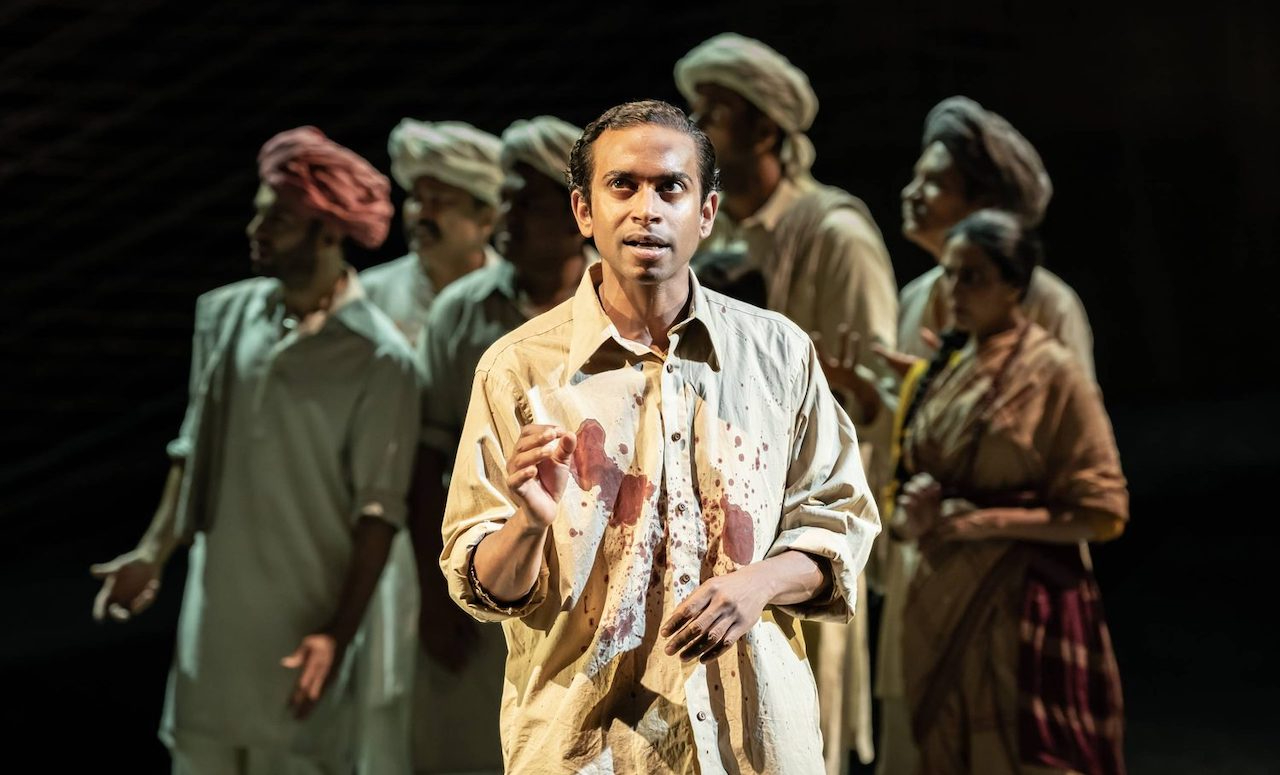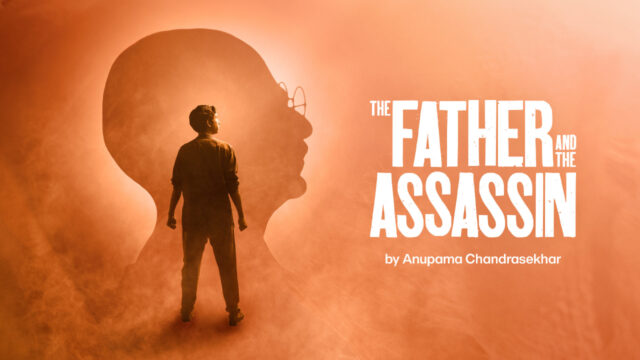The Father and the Assassin reopens at the National Theatre

Engraved on the backdrop of Partition, The Father and the Assassin returns to the National Theatre for its second engagement. Anupama Chandrasekhar’s play is anchored in a pivotal moment of Indian history, and delves into the narrative of Nathuram Godse, the man responsible for the assassination of Mohandas Gandhi. It offers a penetrating exploration of the psyche of a murderer and the profound motivations behind such a seemingly heinous act.
Under Indhu Rubasingham’s direction the story explores the themes of colonialism, gender identity and social disparity. It’s largely the same production, but Rubasingham’s subtle shifts in approach imbue the story of Godse with an entirely new dimension. The most striking alteration lies in the casting of Hiran Abeysekera in the lead role of Nathuram Godse. Whereas previously the audience encountered a more subdued portrayal of Godse, Abeysekera presents a character who is unhinged and somewhat sinister, instantly captivating the audience’s attention and tapping into their fascination with the macabre. This grip is unrelenting, thanks to Abeysekera’s consummate acting skills and finesse as a narrator, which contribute to the seamless weaving of this compelling tale.
Paul Bazely, reprising his role as Gandhi, has not only exceeded his prior portrayal but also delivers a rejuvenated interpretation of “the father”. The on-stage chemistry between Gandhi and Godse further contributes to the intriguing ambiguity surrounding the existence of an unequivocal villain or victim within the narrative. The ensemble skillfully looks into the divisive facets of Gandhi, with Bazely in particular providing an authentic glimpse into the multifaceted persona. He deftly portrays both the imperfections and humanity of the man in a manner that few can achieve.
The stage comes alive with energy and movement, breathing life into forgotten chapters of Indian history. During the Salt Tax protest reenactment, the seamless blend of sound effects and the ensemble’s choreography transports the audience into the shoes of Gandhi’s supporters, shedding light on the unspoken brutality of the British. This play excels in its ability to educate and captivate, filling the gaps left by traditional textbooks and Western narratives. It’s a gripping and vital experience that resonates deeply.
While The Father and the Assassin occasionally risks the audience’s attention by going too deeply into the intricacies of Indian politics without maintaining a balanced focus on the microcosmic tale of Godse’s life, this very challenge beckons the audience to engage with matters beyond mere entertainment. It prompts viewers to pose crucial questions, not only about India and British colonial rule but also, on a broader scale, about our individual societal responsibilities, the choices we make, and the issues we opt to remain silent on. Ultimately, the play extends an invitation for us to vocalise, to educate ourselves and to effect meaningful change.
Natallia Pearmain
Photo: Marc Brenner
The Father and the Assassin is at the National Theatre from 8th September until 14th October 2023. For further information or to book visit the theatre’s website here.


























Facebook
Twitter
Instagram
YouTube
RSS